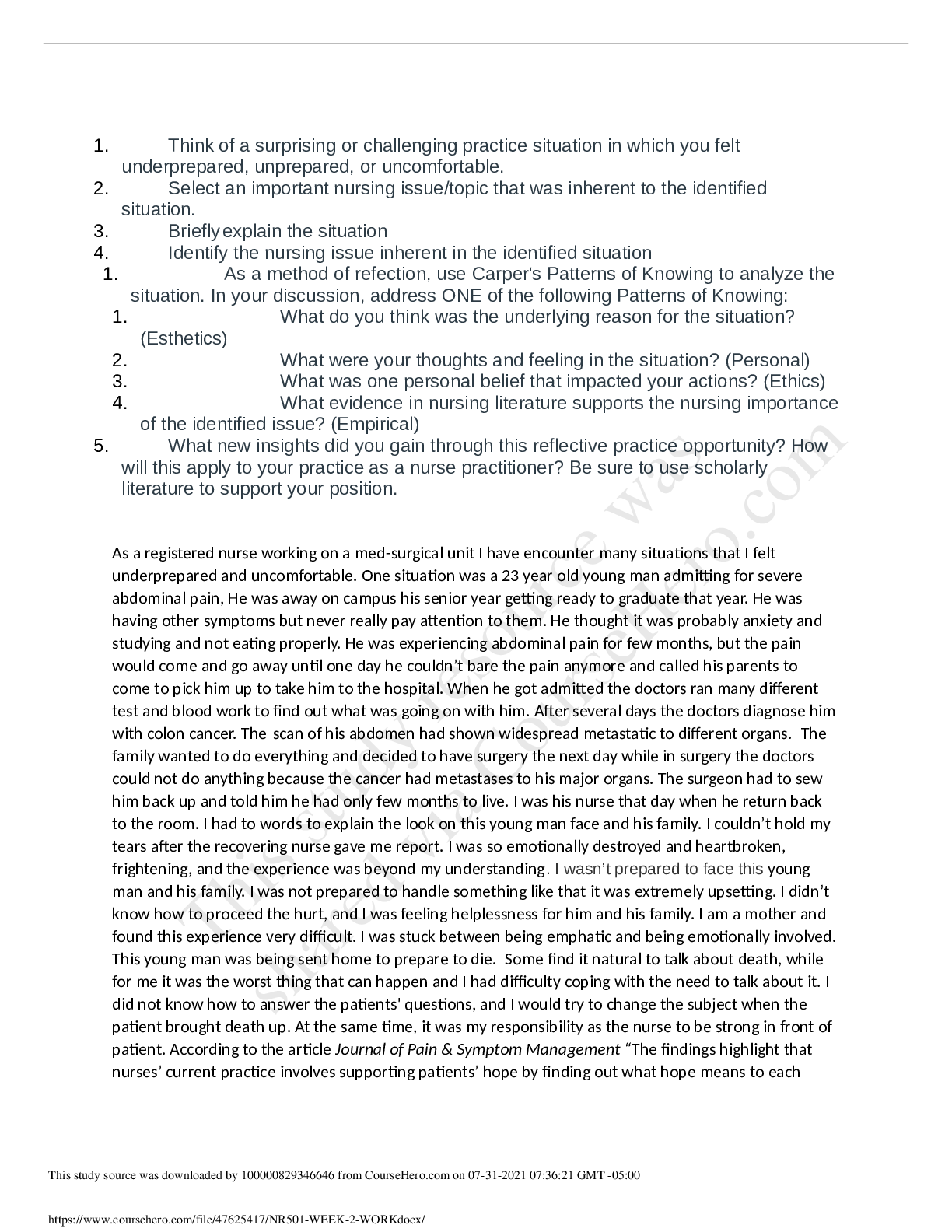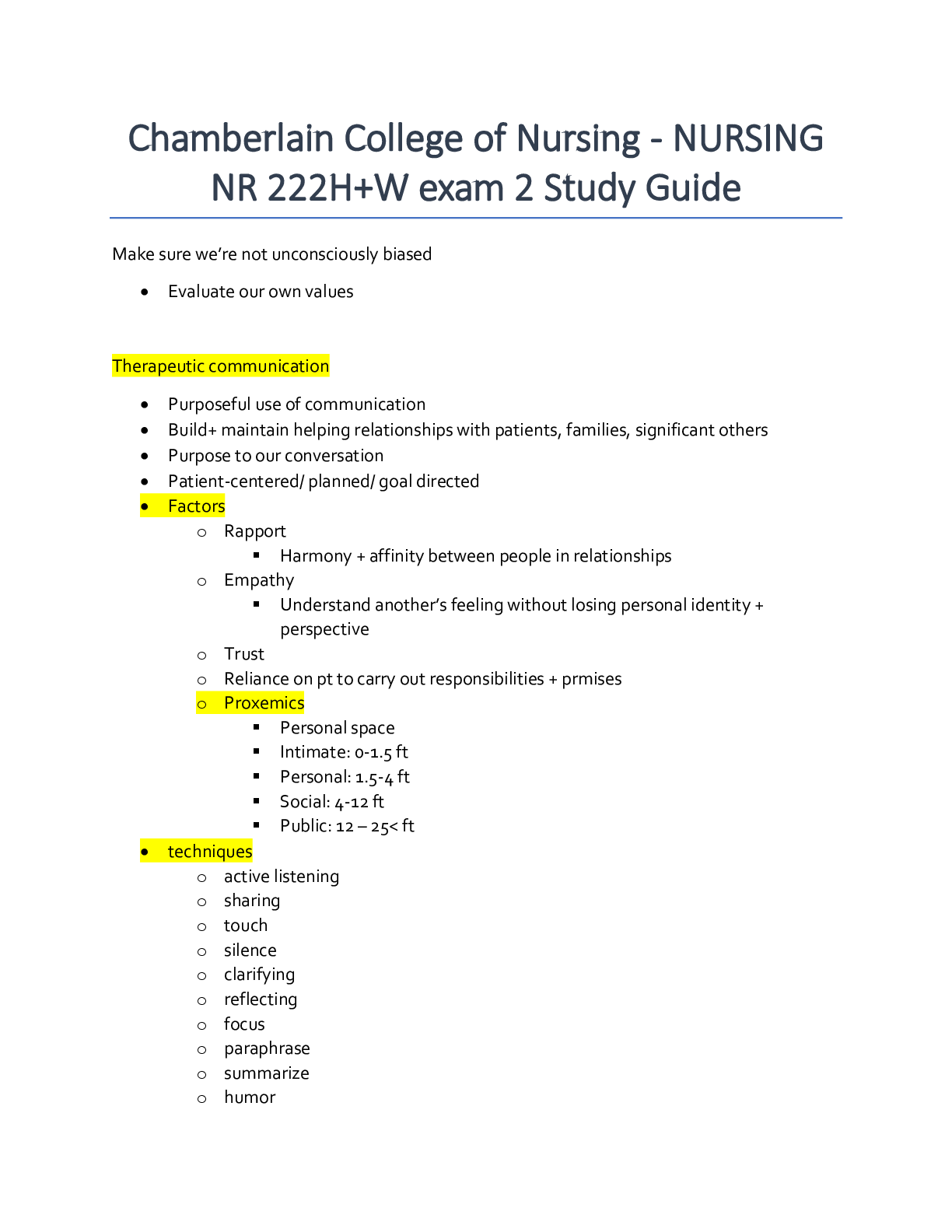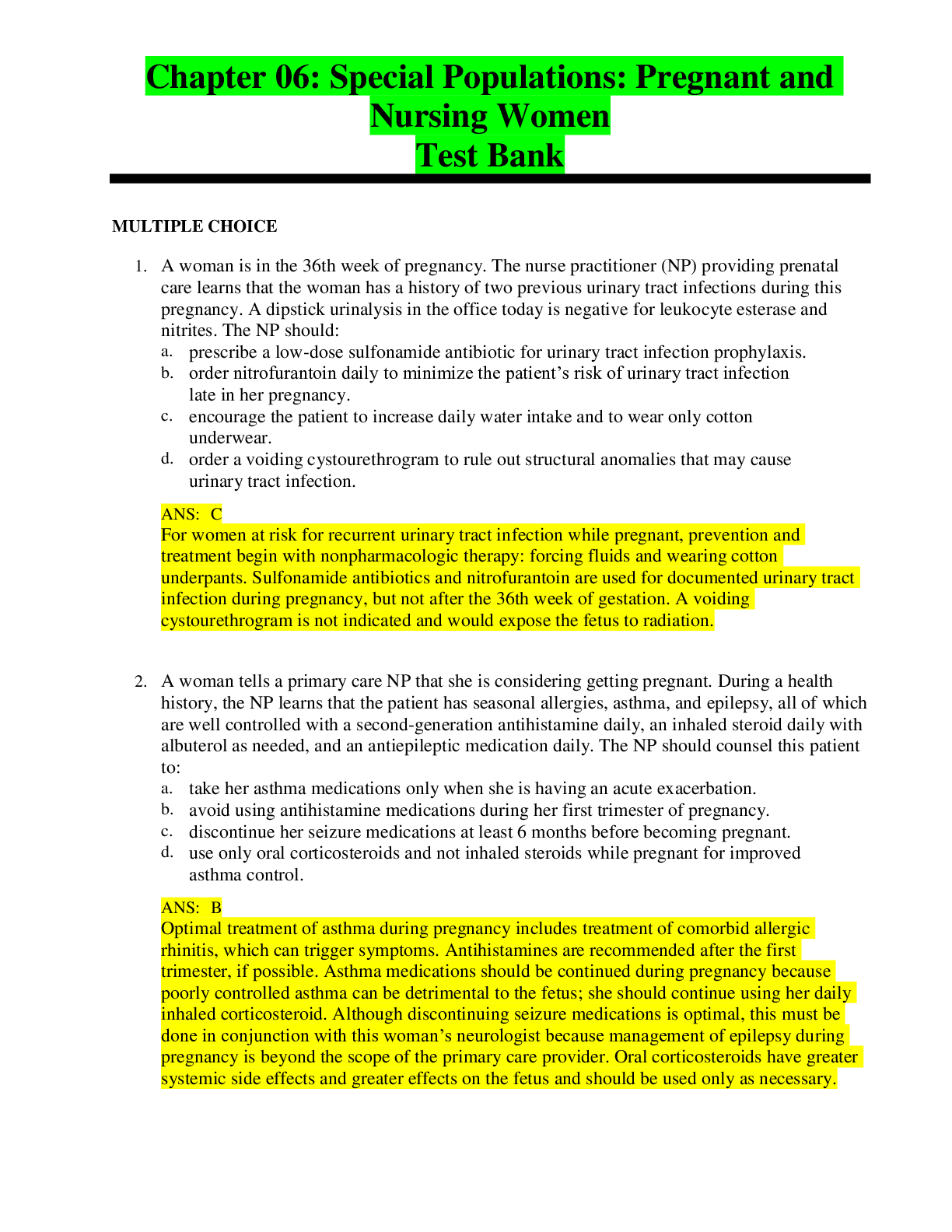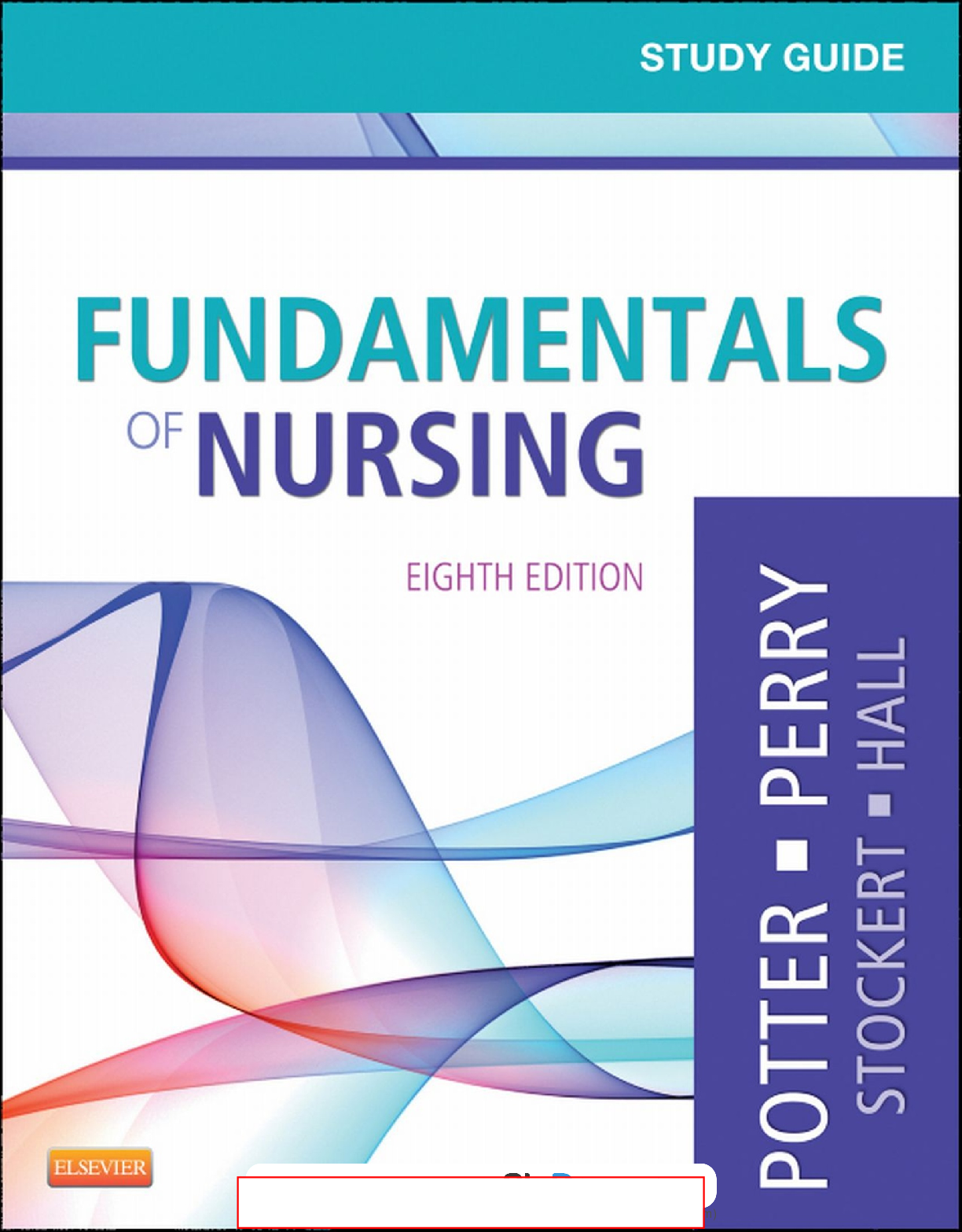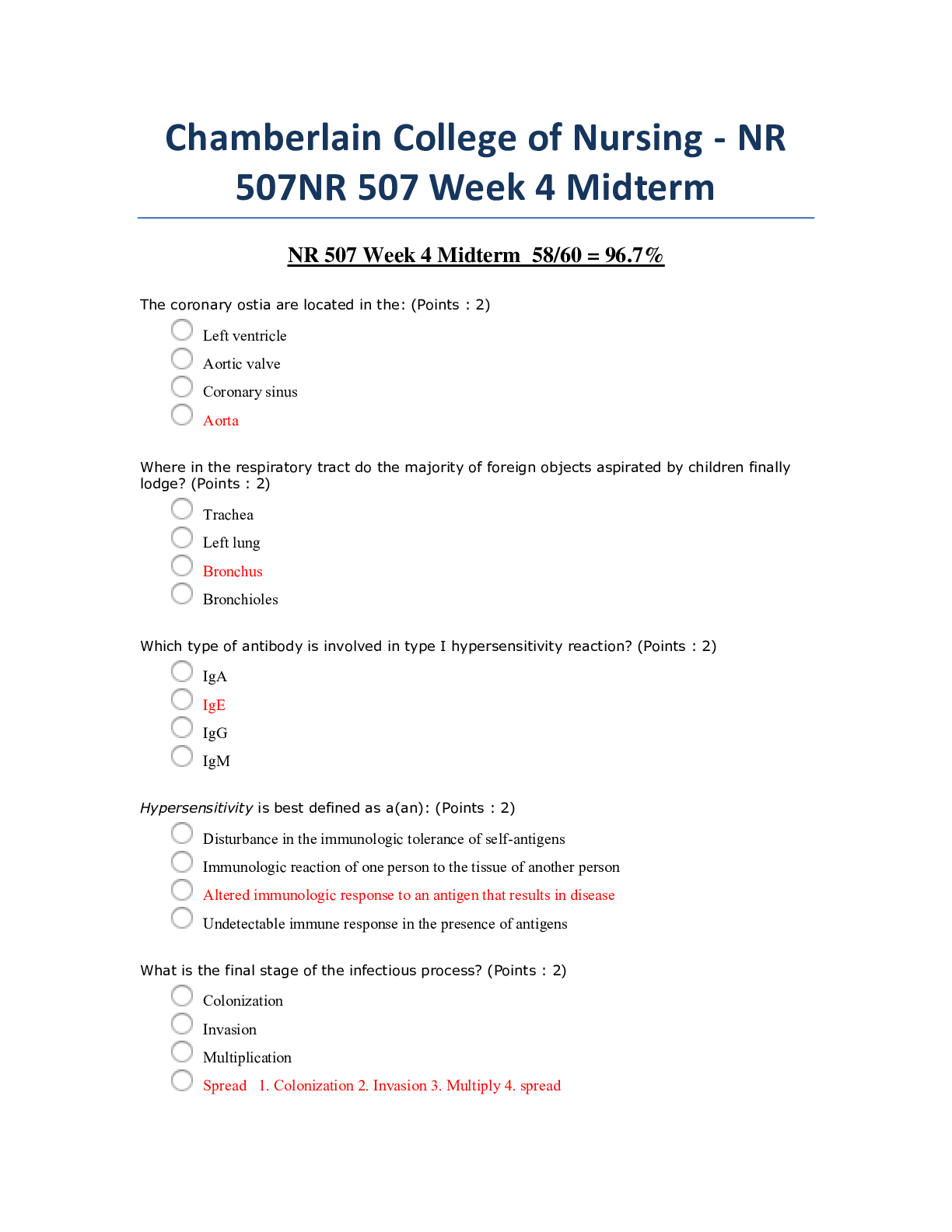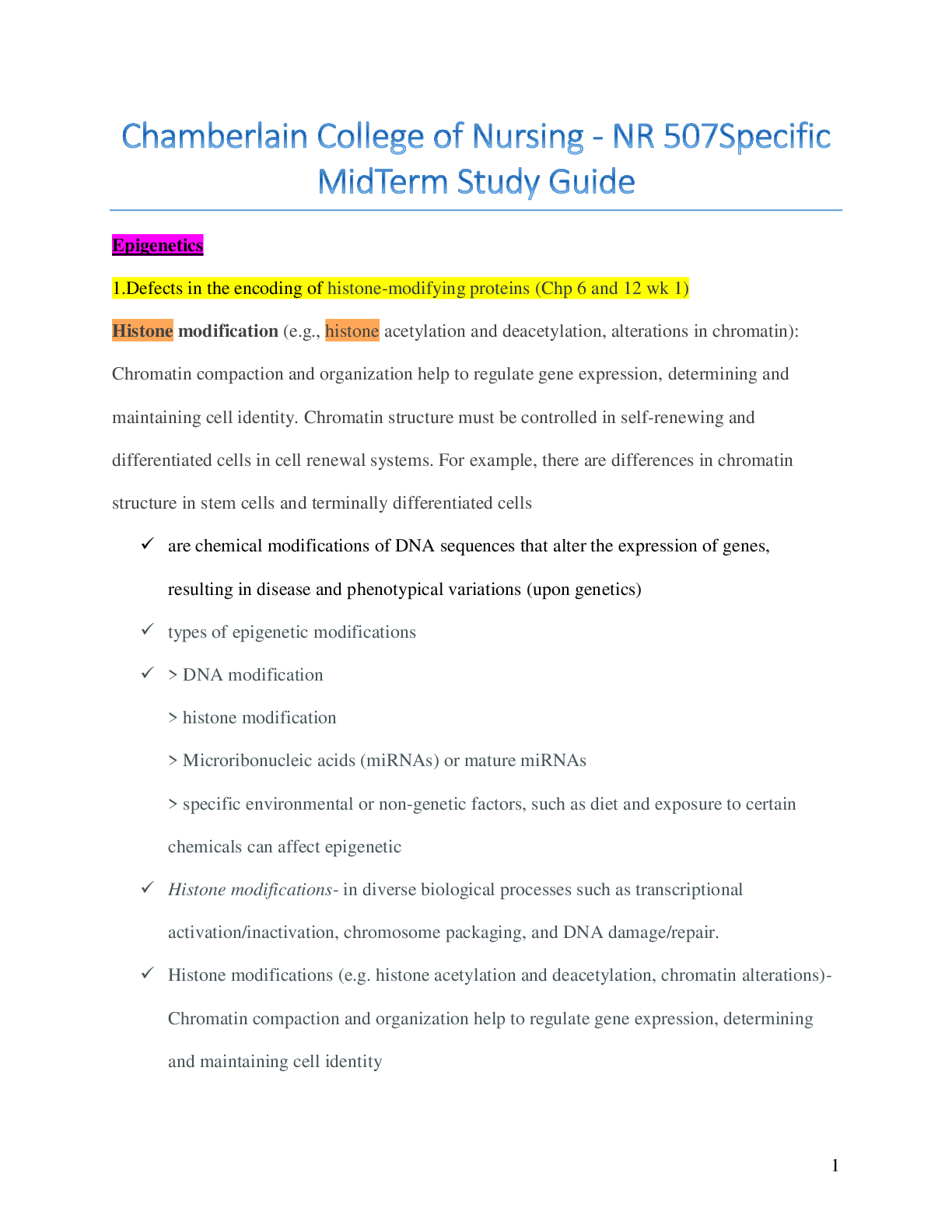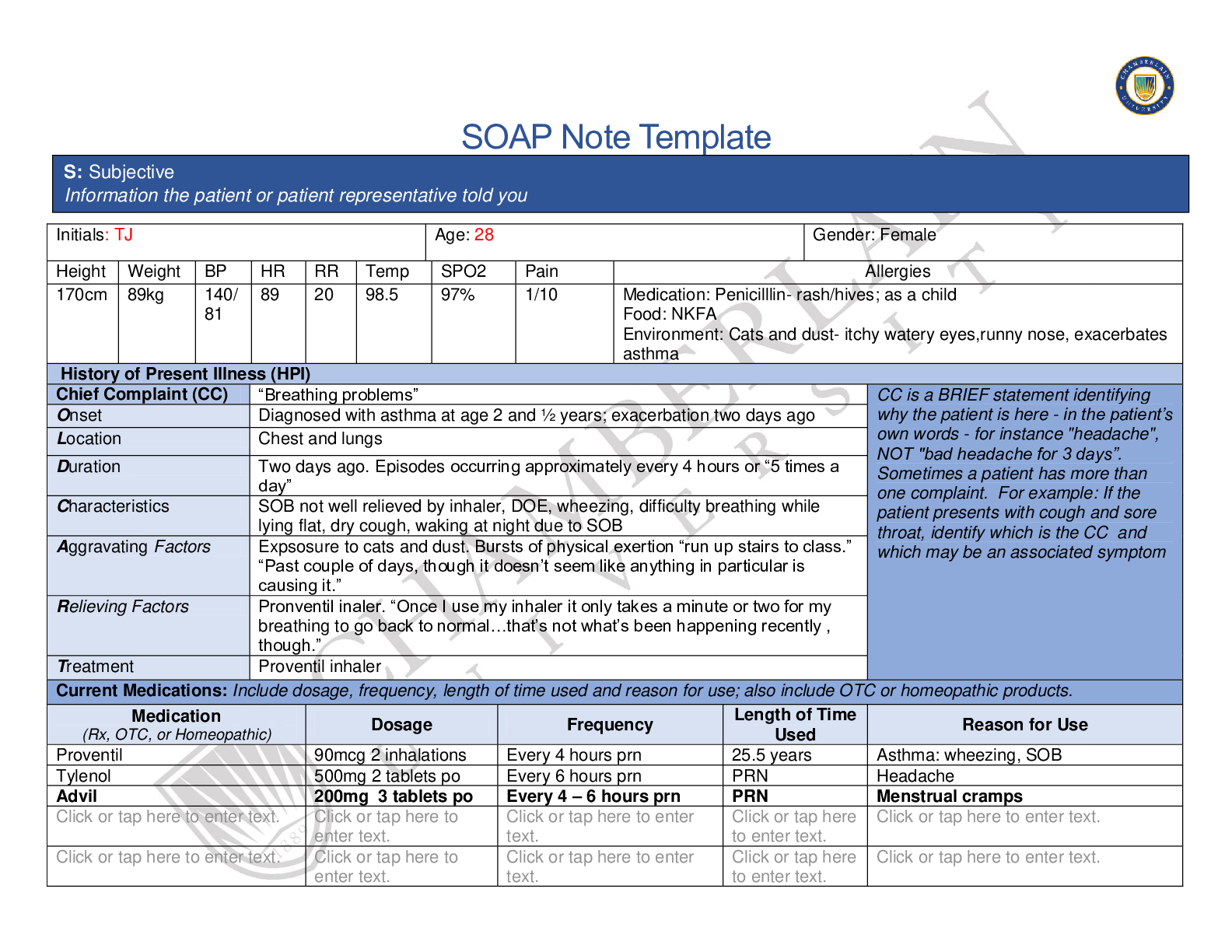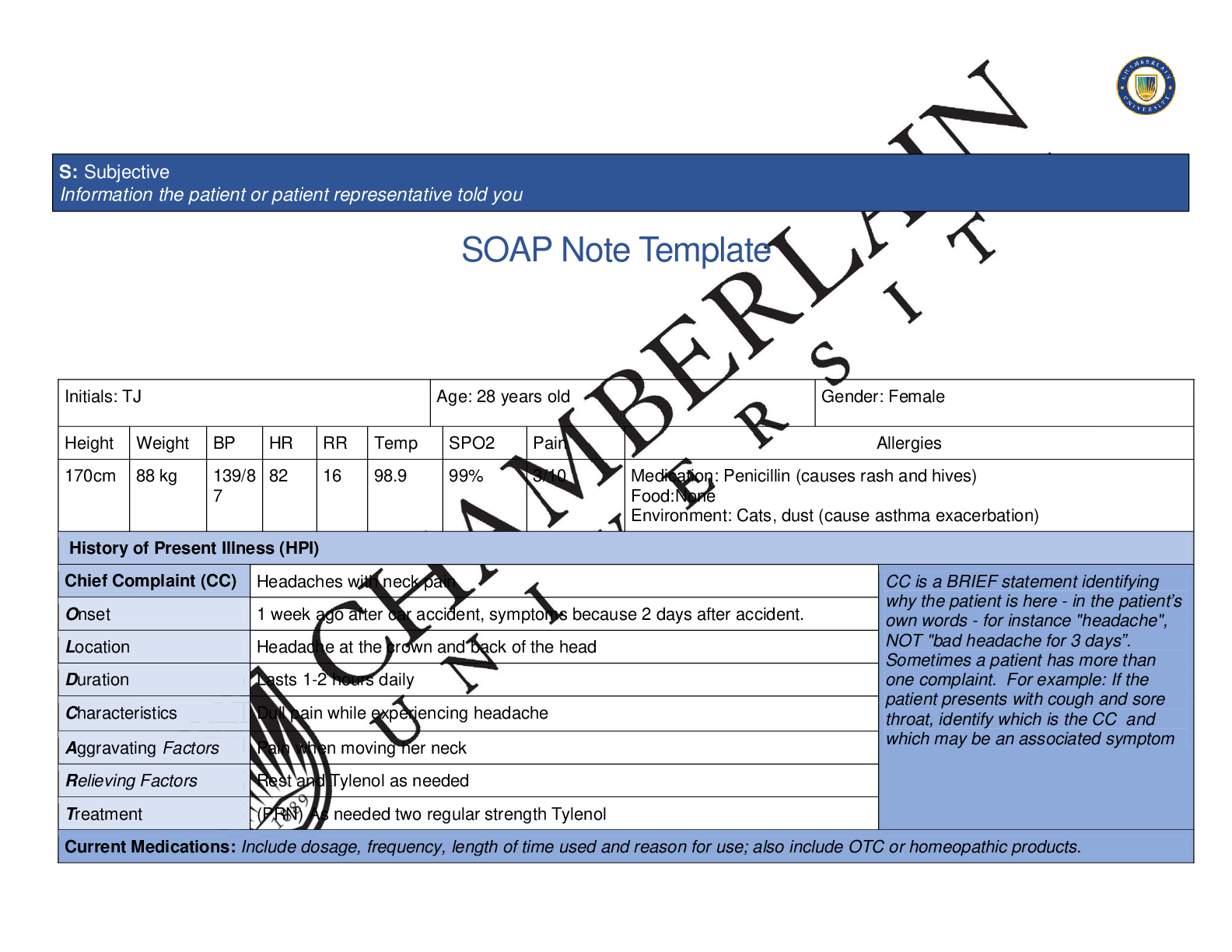*NURSING > QUESTIONS & ANSWERS > Chamberlain College of Nursing - NR 508 NR 508NR 508 Wk1 (All)
Chamberlain College of Nursing - NR 508 NR 508NR 508 Wk1
Document Content and Description Below
NR 508 - Week 1: Discussion- Foundation of the Role of the Nurse Practitioner as Prescriber Legal and Professional Issues in Prescribing Dr. Medina and Class, Approximately 15,000 APRNs in Texas ar... e qualified to provide care and help alleviate the health care provider shortage, yet they are unable to practice to the full extent of their education and training because regulation surrounding APRN practice in Texas is so restrictive (Peck, 2013). Describe NP practice in your state. The legislative trail that started in 1978 to regulate APNs’ practice resulted in one of the most complex and confusing laws on prescriptive authority in the US. As a result, APRNs have some autonomous elements of practice, such as diagnosing, which is delegated but carries no actual practice restrictions. However, prescriptive authority is very complicated, with many variables and scenario-based rules that govern the ability to prescribe. Not only does Texas require each APRN to secure a collaborating agreement with a physician, but there are also many other limitations, which vary from practice to practice (Peck, 2013). There are two primary limitations on prescriptive authority for Advanced Practice Registered Nurses (APRNs) in Texas (Coalition for APN, 2018): 1. Prescriptive Authority must be delegated by a physician through a written document prescribed by law; and 2. Certain limitations apply to prescribing Controlled Substances (CSs). Include how many continuing education hours are required for your state. (a) The APRN shall renew the privilege to sign prescription drug orders and medication orders in conjunction with the RN and advanced practice license renewal application (Coalition for APN, 2018). (b) The APRN seeking to maintain prescriptive authority shall attest to completing at least five contact hours of continuing education in pharmacotherapeutics within the preceding biennium. In every licensure cycle thereafter, if renewal after January 1, 2015, the APRNs seeking to maintain prescriptive authority who order or prescribe controlled substances shall attest to completing at least three additional contact hours of continuing education related to prescribing controlled substances within the preceding biennium (Coalition for APN, 2018) (c) The continuing education requirements in subsection (b) above shall be in addition to continuing education required of an APRN to maintain national certification. The Board also requires 20 hours of continuing education and active practice; 400 practice hours is the current minimum (Coalition for APN, 2018 [Show More]
Last updated: 2 years ago
Preview 1 out of 4 pages
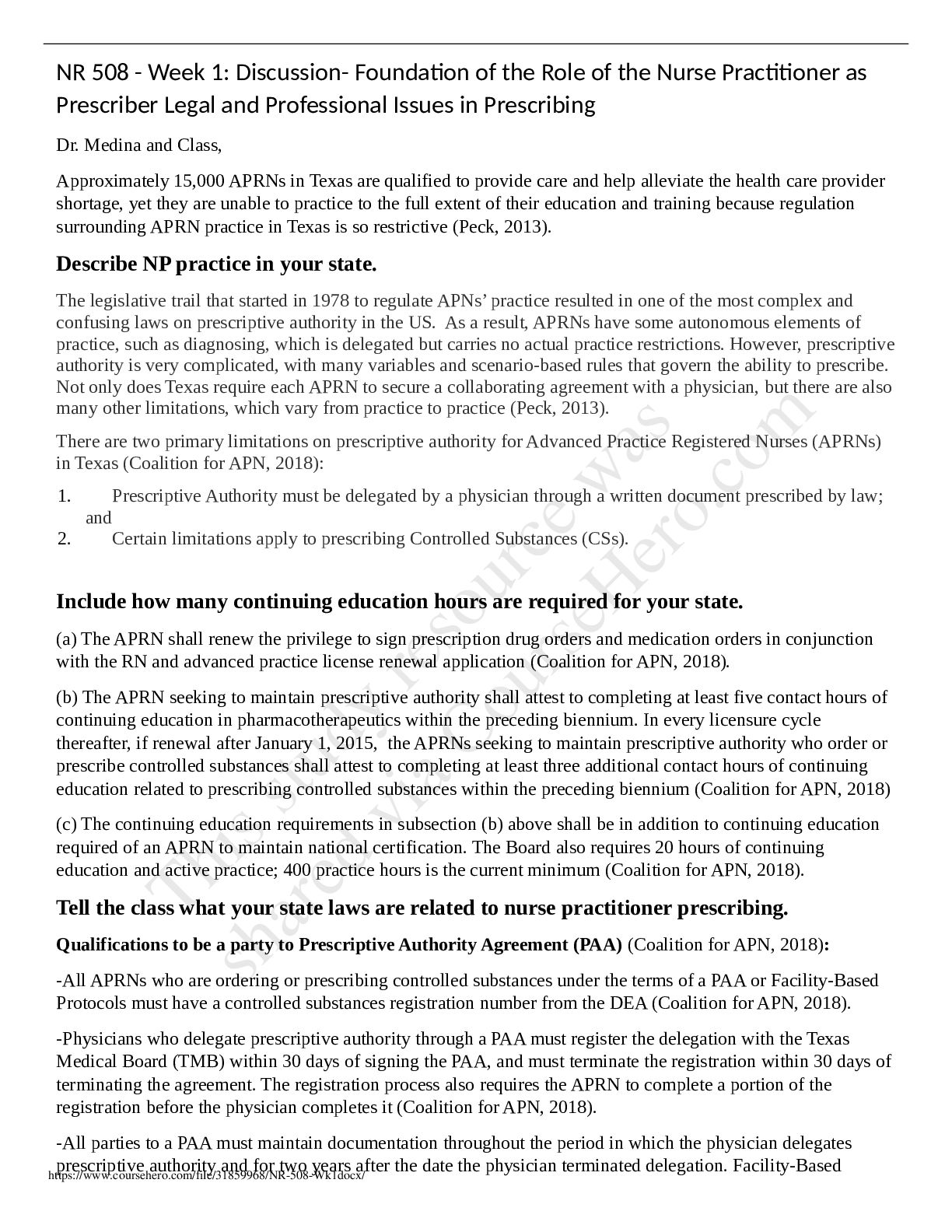
Buy this document to get the full access instantly
Instant Download Access after purchase
Buy NowInstant download
We Accept:

Reviews( 0 )
$5.00
Can't find what you want? Try our AI powered Search
Document information
Connected school, study & course
About the document
Uploaded On
Mar 13, 2021
Number of pages
4
Written in
Additional information
This document has been written for:
Uploaded
Mar 13, 2021
Downloads
0
Views
45


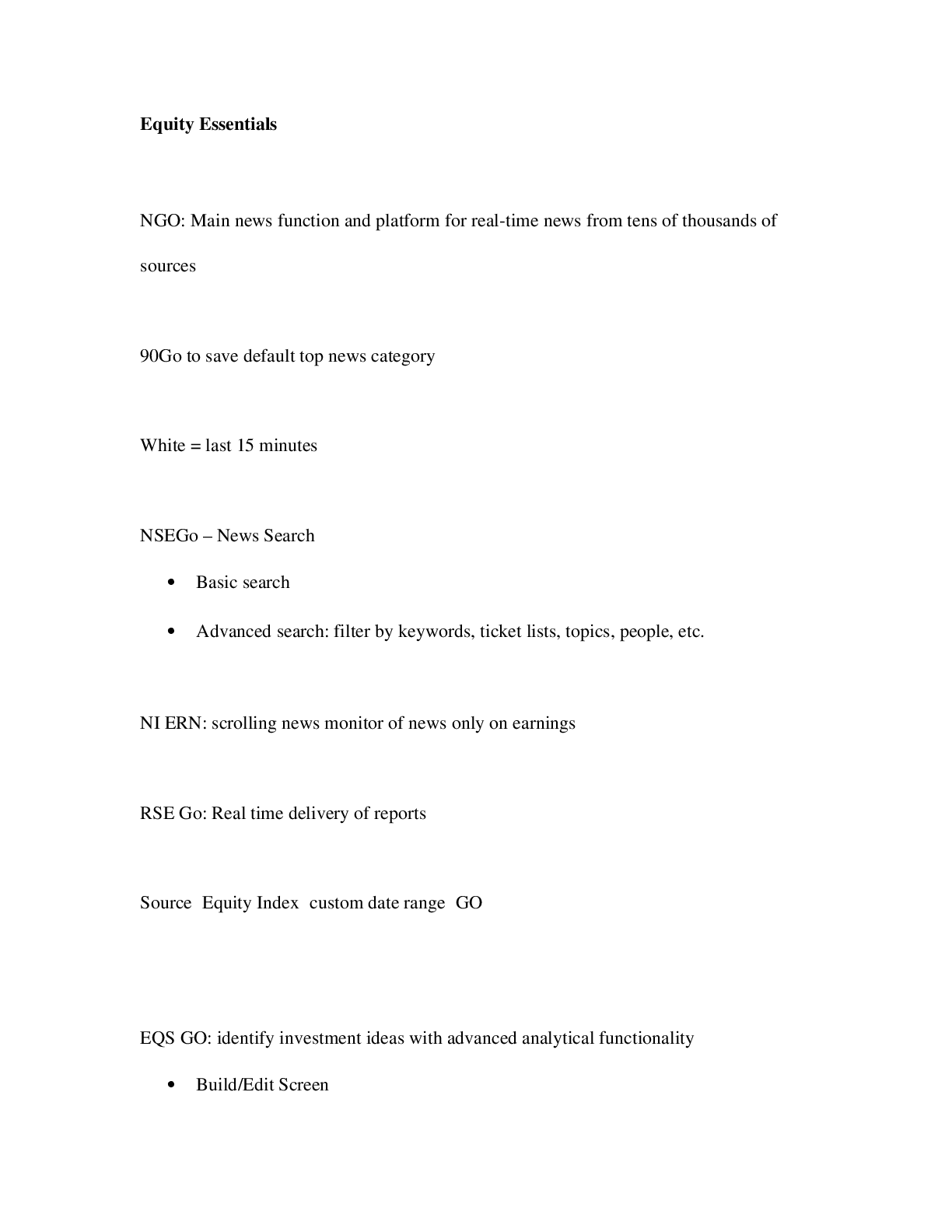

.png)

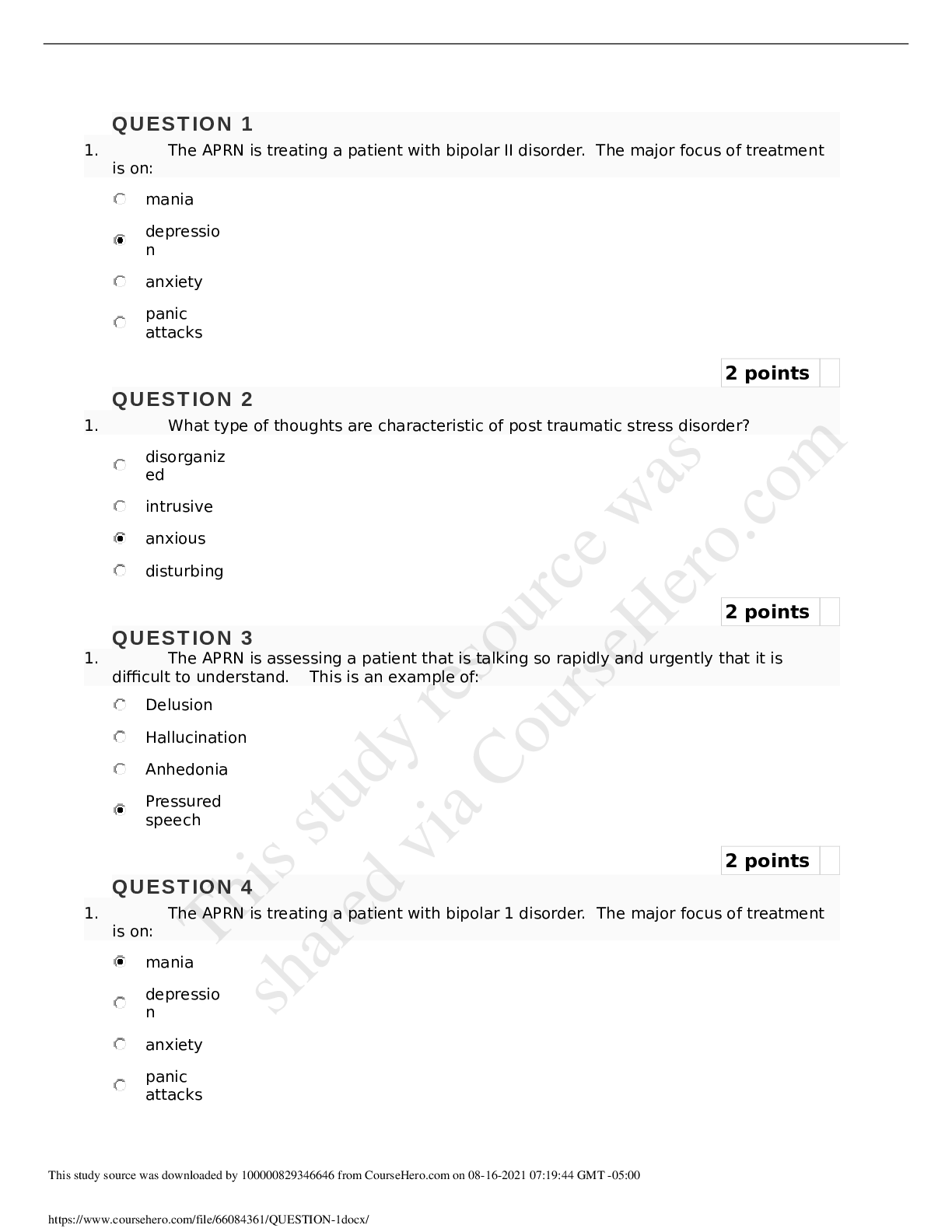

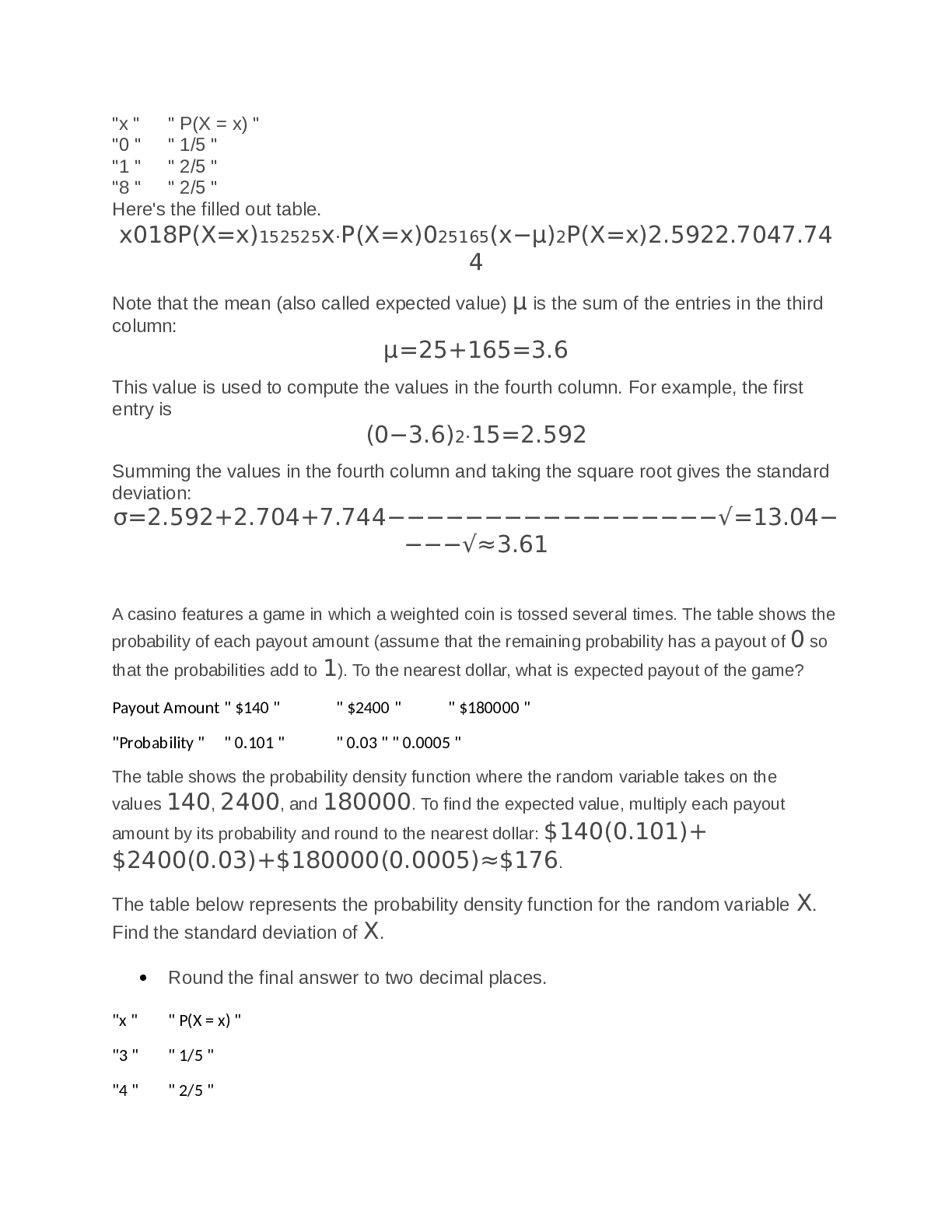
.png)

